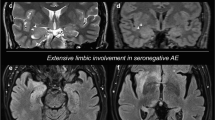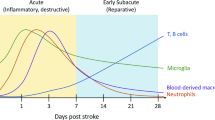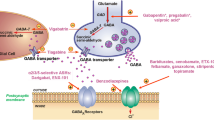Abstract
Recent studies have reported that immune cells were not always found in brain specimens from epileptic patients, then should we stop investigating the relationship between these cells and epilepsy? The answer is no! In addition to immunocyte infiltration in brain parenchyma, a flurry of papers have demonstrated that there were significant alterations in peripheral blood cells (PBCs) immediately after seizure onset, especially changes in some specific transporters of neurotransmitters expressed on the membrane of immunocyte. These transporters may regulate neuronal excitability in mature neurons. Besides, many researchers did find activated leukocytes adhered to the endothelium of blood brain barrier or infiltrated into the brain parenchyma in several types of epilepsy both in human and animal studies; moreover, it is worth noting that different immune cells play different roles in epilepsy development, which was indicated by in vitro and in vivo evidence. This review is going to summarize available evidence supporting changes in PBCs after seizures, and will also focus on some specific effects of immune cells on epilepsy development.
Similar content being viewed by others
References
Bhalla D, Chea K, Hun C, Chan V, Huc P, Chan S, Sebbag R, Gerard D, Dumas M, Oum S, Druet-Cabanac M, Preux PM (2013) Epilepsy in Cambodia-treatment aspects and policy implications: a population-based representative survey. PloS One 8:e74817
Johnson EA, Dao TL, Guignet MA, Geddes CE, Koemeter-Cox AI, Kan RK (2011) Increased expression of the chemokines CXCL1 and MIP-1 alpha by resident brain cells precedes neutrophil infiltration in the brain following prolonged Soman-induced status epilepticus in rats. J Neuroinflammation 8:41
Nowak M, Bauer S, Haag A, Cepok S, Todorova-Rudolph A, Tackenberg B et al (2011) Interictal alterations of cytokines and leukocytes in patients with active epilepsy. Brain Behav Immun 25(3):423–428
Roberts J, Kahle MP, Bix GJ (2012) Perlecan and the blood-brain barrier: beneficial proteolysis? Front Pharmacol 3:155
Fabene PF, Navarro Mora G, Martinello M, Rossi B, Merigo F, Ottoboni L et al (2008) A role for leukocyte-endothelial adhesion mechanisms in epilepsy. Nature Med 14(12):1377–1383
Sendrowski K, Sobaniec W, Sobaniec-Lotowska ME, Lewczuk P (2004) S-100 protein as marker of the blood-brain barrier disruption in children with internal hydrocephalus and epilepsy—a preliminary study. Rocz Akad Med Bialymst 49(Suppl 1):236–238
Zattoni M, Mura ML, Deprez F, Schwendener RA, Engelhardt B, Frei K et al (2011) Brain infiltration of leukocytes contributes to the pathophysiology of temporal lobe epilepsy. J Neurosci Off J Soc Neurosci 31(11):4037–4050
Koplik EV, Pertsov SS, Kalinichenko LS (2014) Effect of interleukin-1beta on peripheral blood leukocytes in rats with various behavioral characteristics during acute stress. Bull Exp Biol Med 156:435–440
Jin R, Song Z, Yu S, Piazza A, Nanda A, Penninger JM et al (2011) Phosphatidylinositol-3-kinase gamma plays a central role in blood–brain barrier dysfunction in acute experimental stroke. Stroke J Cereb Circ 42(7):2033–2044
Lam FW, Burns AR, Smith CW, Rumbaut RE (2011) Platelets enhance neutrophil transendothelial migration via P-selectin glycoprotein ligand-1. Am J Physiol Heart Circ Physiol 300(2):H468–H475
Albano C, Cupello A, Mainardi P, Scarrone S, Favale E (2006) Successful treatment of epilepsy with serotonin reuptake inhibitors: proposed mechanism. Neurochem Res 31(4):509–514
Rainesalo S, Eriksson K, Saransaari P, Keranen T (2004) Uptake of GABA and activity of GABA transaminase in blood platelets from children with absence epilepsy. Neurochem Res 29(10):1873–1877
Rainesalo S, Keranen T, Peltola J, Saransaari P (2003) Glutamate uptake in blood platelets from epileptic patients. Neurochem Int 43(4–5):389–392
Yogeeswari P, Sriram D, Vaigundaragavendran J (2005) The GABA shunt: an attractive and potential therapeutic target in the treatment of epileptic disorders. Curr Drug Metab 6(2):127–139
Csanyi G, Kis B, Gecse A, Telegdy G, Szupera Z, Vecsei L et al (2008) Effects of 3-aminopyridine-induced seizures on platelet eicosanoid synthesis. Pharmacol Rep PR 60(3):345–352
Talib LL, Valente KD, Vincentiis S, Gattaz WF (2013) Correlation between platelet and brain PLA (2) activity. Prostaglandins Leukot Essent Fatty Acids 89(4):265–268
Cupello A, Audenino D, Scarrone S, Fornaro M, Gatta E, Fornaro P, Albano C (2008) Epileptic seizures but not pseudoseizures are associated with decreased density of the serotonin transporter in blood platelet membranes. Neurochem Res 33:2263–2268
Favale E, Audenino D, Cocito L, Albano C (2003) The anticonvulsant effect of citalopram as an indirect evidence of serotonergic impairment in human epileptogenesis. Seizure J Br Epilepsy Assoc 12(5):316–318
Langer SZ, Zarifian E, Briley M, Raisman R, Sechter D (1982) High-affinity 3H-imipramine binding: a new biological marker in depression. Pharmacopsychiatria 15(1):4–10
Cupello A, Favale E, Audenino D, Scarrone S, Gastaldi S, Albano C (2005) Decrease of serotonin transporters in blood platelets after epileptic seizures. Neurochem Res 30(4):425–428
Arteaga R, Herranz JL, Armijo JA (1993) Platelet GABA-transaminase in epileptic children: influence of epilepsy and anticonvulsants. Epilepsy Res 14(1):73–85
Kumlien E, Sherif F, Ge L, Oreland L (1995) Platelet and brain GABA-transaminase and monoamine oxidase activities in patients with complex partial seizures. Epilepsy Res 20(2):161–170
Mendu SK, Bhandage A, Jin Z, Birnir B (2012) Different subtypes of GABA-A receptors are expressed in human, mouse and rat T lymphocytes. PloS one 7:e42959
Morrell CN, Sun H, Ikeda M, Beique JC, Swaim AM, Mason E, Martin TV, Thompson LE, Gozen O, Ampagoomian D, Sprengel R, Rothstein J, Faraday N, Huganir R, Lowenstein CJ (2008) Glutamate mediates platelet activation through the AMPA receptor. J Exp Med 205:575–584
Mashkina AP, Cizkova D, Vanicky I, Boldyrev AA (2010) NMDA receptors are expressed in lymphocytes activated both in vitro and in vivo. Cell Mol Neurobiol 30:901–907
Boldyrev AA, Bryushkova EA, Vladychenskaya EA (2012) NMDA receptors in immune competent cells. Biochem Biokhimiia 77:128–134
Borisova T, Kasatkina L, Ostapchenko L (2011) The proton gradient of secretory granules and glutamate transport in blood platelets during cholesterol depletion of the plasma membrane by methyl-beta-cyclodextrin. Neurochem Int 59:965–975
Ganor Y, Besser M, Ben-Zakay N, Unger T, Levite M (2003) Human T cells express a functional ionotropic glutamate receptor GluR3, and glutamate by itself triggers integrin-mediated adhesion to laminin and fibronectin and chemotactic migration. J Immunol 170:4362–4372
Mantegazza R, Bernasconi P, Baggi F, Spreafico R, Ragona F, Antozzi C, Bernardi G, Granata T (2002) Antibodies against GluR3 peptides are not specific for Rasmussen’s encephalitis but are also present in epilepsy patients with severe, early onset disease and intractable seizures. J Neuroimmunol 131:179
Gupta R, Palchaudhuri S, Chattopadhyay D (2013) Glutamate induces neutrophil cell migration by activating class I metabotropic glutamate receptors. Amino Acids 44:757–767
Pacheco R, Gallart T, Lluis C, Franco R (2007) Role of glutamate on T-cell mediated immunity. J Neuroimmunol 185:9–19
Collard CD, Park KA, Montalto MC, Alapati S, Buras JA, Stahl GL, Colgan SP (2002) Neutrophil-derived glutamate regulates vascular endothelial barrier function. J Biol Chem 277:14801–14811
Melzer N, Hicking G, Bittner S, Bobak N, Gobel K, Herrmann AM, Wiendl H, Meuth SG (2013) Excitotoxic neuronal cell death during an oligodendrocyte-directed CD8+ T cell attack in the CNS gray matter. J Neuroinflammation 10:121
Tang Y, Lu A, Aronow BJ, Sharp FR (2001) Blood genomic responses differ after stroke, seizures, hypoglycemia, and hypoxia: blood genomic fingerprints of disease. Ann Neurol 50(6):699–707
Greenberg DA, Durner M, Keddache M, Shinnar S, Resor SR, Moshe SL et al (2000) Reproducibility and complications in gene searches: linkage on chromosome 6, heterogeneity, association, and maternal inheritance in juvenile myoclonic epilepsy. Am J Hum Genet 66(2):508–516
Ozkara C, Altintas A, Yilmaz E, Eskazan E, Erkol G, Ozyurt E et al (2002) An association between mesial temporal lobe epilepsy with hippocampal sclerosis and human leukocyte antigens. Epilepsia 43(3):236–239
Bauer S, Koller M, Cepok S, Todorova-Rudolph A, Nowak M, Nockher WA et al (2008) NK and CD4+ T cell changes in blood after seizures in temporal lobe epilepsy. Exp Neurol 211(2):370–377
Sarkis RA, Jehi L, Silveira D, Janigro D, Najm I (2012) Patients with generalised epilepsy have a higher white blood cell count than patients with focal epilepsy. Epileptic Disorders international Epilepsy J Videotape 14(1):57–63
Aydogan M, Aydogan A, Kara B, Basim B, Erdogan S (2007) Transient peripheral leukocytosis in children with afebrile seizures. J Child Neurol 22(1):77–79
Marchi N, Johnson AJ, Puvenna V, Johnson HL, Tierney W, Ghosh C et al (2011) Modulation of peripheral cytotoxic cells and ictogenesis in a model of seizures. Epilepsia 52(9):1627–1634
Jankowsky JL, Patterson PH (2001) The role of cytokines and growth factors in seizures and their sequelae. Prog Neurobiol 63(2):125–149
Adeoye O, Walsh K, Woo JG, Haverbusch M, Moomaw CJ, Broderick JP, Kissela BM, Kleindorfer D, Flaherty ML, Woo D (2014) Peripheral monocyte count is associated with case fatality after intracerebral hemorrhage. J Stroke Cerebrovasc Dis Off J National Stroke Assoc 23:e107–e111
Chen S, Wu H, Klebe D, Hong Y, Zhang J, Tang J (2013) Regulatory T cell in stroke: a new paradigm for immune regulation. Clin Dev Immunol 2013:689827
Li P, Gan Y, Sun BL, Zhang F, Lu B, Gao Y et al (2013) Adoptive regulatory T-cell therapy protects against cerebral ischemia. Ann Neurol 74(3):458–471
Li C, Ma WN, Wang H (2011) Changes of regulatory T cells in the peripheral blood of children with epilepsy. Zhongguo dang dai er ke za zhi = Chinese J Contemp Pediatr 13(11):889–892
Kigerl KA, Lai W, Rivest S, Hart RP, Satoskar AR, Popovich PG (2007) Toll-like receptor (TLR)-2 and TLR-4 regulate inflammation, gliosis, and myelin sparing after spinal cord injury. J Neurochem 102(1):37–50
Luissint AC, Artus C, Glacial F, Ganeshamoorthy K, Couraud PO (2012) Tight junctions at the blood brain barrier: physiological architecture and disease-associated dysregulation. Fluids Barriers CNS 9:23
Fabene PF, Navarro Mora G, Martinello M, Rossi B, Merigo F, Ottoboni L, Bach S, Angiari S, Benati D, Chakir A, Zanetti L, Schio F, Osculati A, Marzola P, Nicolato E, Homeister JW, Xia L, Lowe JB, McEver RP, Osculati F, Sbarbati A, Butcher EC, Constantin G (2008) A role for leukocyte-endothelial adhesion mechanisms in epilepsy. Nature Med 14:1377–1383
Pawar RD, Williams T, Khera R, Eid A, Aljitawi OS, Dusing RW (2014) Inflammatory response following neutrophil recovery postchemotherapy in acute myeloid leukemia cases without evidence of infection: role of homing of neutrophils. J Blood Med 5:37–41
Kim JE, Ryu HJ, Yeo SI, Kang TC (2010) P2X7 receptor regulates leukocyte infiltrations in rat frontoparietal cortex following status epilepticus. J Neuroinflammation 7:65
Kim JE, Ryu HJ, Choi SY, Kang TC (2012) Tumor necrosis factor-alpha-mediated threonine 435 phosphorylation of p65 nuclear factor-kappaB subunit in endothelial cells induces vasogenic edema and neutrophil infiltration in the rat piriform cortex following status epilepticus. J Neuroinflammation 9:6
Dinkel K, Dhabhar FS, Sapolsky RM (2004) Neurotoxic effects of polymorphonuclear granulocytes on hippocampal primary cultures. Proc Natl Acad Sci USA 101(1):331–336
Silverberg J, Ginsburg D, Orman R, Amassian V, Durkin HG, Stewart M (2010) Lymphocyte infiltration of neocortex and hippocampus after a single brief seizure in mice. Brain Behav Immun 24(2):263–272
Nakahara H, Konishi Y, Beach TG, Yamada N, Makino S, Tooyama I (2010) Infiltration of T lymphocytes and expression of icam-1 in the hippocampus of patients with hippocampal sclerosis. Acta Histochem Et Cytochem 43(6):157–162
Deprez F, Zattoni M, Mura ML, Frei K, Fritschy JM (2011) Adoptive transfer of T lymphocytes in immunodeficient mice influences epileptogenesis and neurodegeneration in a model of temporal lobe epilepsy. Neurobiol Dis 44(2):174–184
Chen Z, Yu S, Concha HQ, Zhu Y, Mix E, Winblad B et al (2004) Kainic acid-induced excitotoxic hippocampal neurodegeneration in C57BL/6 mice: B cell and T cell subsets may contribute differently to the pathogenesis. Brain Behav Immun 18(2):175–185
Ravizza T, Gagliardi B, Noe F, Boer K, Aronica E, Vezzani A (2008) Innate and adaptive immunity during epileptogenesis and spontaneous seizures: evidence from experimental models and human temporal lobe epilepsy. Neurobiol Dis 29(1):142–160
Marchi N, Teng Q, Ghosh C, Fan Q, Nguyen MT, Desai NK et al (2010) Blood-brain barrier damage, but not parenchymal white blood cells, is a hallmark of seizure activity. Brain Res 1353:176–186
Xu D, Miller SD, Koh S (2013) Immune mechanisms in epileptogenesis. Front Cell Neurosci 7:195
Libbey JE, Kennett NJ, Wilcox KS, White HS, Fujinami RS (2011) Interleukin-6, produced by resident cells of the central nervous system and infiltrating cells, contributes to the development of seizures following viral infection. J Virol 85(14):6913–6922
Fux M, van Rooijen N, Owens T (2008) Macrophage-independent T cell infiltration to the site of injury-induced brain inflammation. J Neuroimmunol 203(1):64–72
Conflict of interest
Jinjie Liu and co-authors declare that they have no conflicts of interest.
Author information
Authors and Affiliations
Corresponding author
Rights and permissions
About this article
Cite this article
Wang, H., Liu, S., Tang, Z. et al. Some cross-talks between immune cells and epilepsy should not be forgotten. Neurol Sci 35, 1843–1849 (2014). https://doi.org/10.1007/s10072-014-1955-6
Received:
Accepted:
Published:
Issue Date:
DOI: https://doi.org/10.1007/s10072-014-1955-6




